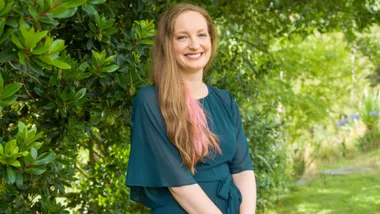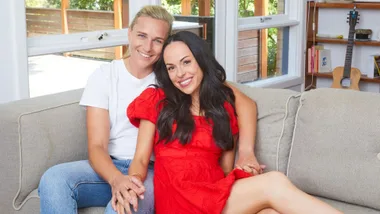Time to call it quits?
Jaws dropped when Michelle* and her husband Tony* broke the news that they were getting divorced. They’d been married for 27 years and to most people it looked like they had a strong relationship.
In fact, the mid-fifties pair had been planning on calling it quits since becoming empty-nesters a year earlier.
“We’d both known for some time that we had nothing in common any more and no longer wanted to be together, but we’d stuck it out for the kids,” says Michelle. “Once they were gone, we just wanted to get on with living separate lives.”
The number of “grey divorces” – couples ending their marriages later in life when they’ve been together for many years – is on the increase. Data from Statistics New Zealand shows that in 2023, nearly 40 percent of divorces involved people aged 50-plus – an increase of 7.1 percent compared to 10 years earlier.
Auckland divorce and relationship coach Kimberlee Sweeney recalls that when she was growing up, older couples getting divorced was unusual and would spark gossip about what must have gone wrong for them to split up after so long together.
“People would say, ‘You’ve got this far, why are you ending it after all this time?’ But now it seems to happen a lot more,” says Kimberlee, who sees a lot of older people thinking about ending their marriages as part of her coaching business, Degrees of Separation.
She believes a lot of that comes down to women being more independent and able, both financially and emotionally, to leave a marriage.
“They’re more self-sufficient and financially stable these days. 10 or 20 years ago, they didn’t always have a choice,” she explains. “Now they often think, ‘I don’t want to be in this marriage any more. Now is the time for me to live my best life without anyone holding me back.’ After years of thinking about other people, it’s time to think about themselves.”
Did you know: Nearly 70% of divorces are initiated by women?

How to save your marriage
If your marriage is in serious trouble, divorce can seem like the only option. But before you call it quits, consider:
- Getting professional help. Seeing a marriage counsellor who is specifically trained to help couples who are struggling may be what you need to overcome your issues.
- Focusing on what’s right with your marriage, rather than what’s wrong. Sometimes one or two problems can be so overwhelming that you feel like there’s no hope for your relationship. But looking at what is working and why it’s worth staying together can make a world of difference.
- Taking time away from the distractions of everyday life, like work and kids, to talk through what’s going on. A weekend spent putting time and energy into your relationship can pay off.
- A trial separation. If you think being apart is the answer to your problems, try it for a short time. It may give you clarity one way or the other.
Why do people pull the plug on marriages later in life?
Kids leaving home
Becoming empty-nesters is a common trigger for separation and divorce, says Kimberlee. “You often see cases where people haven’t been happy for a long time, but they’ve stayed together for the sake of their children. Once the kids have gone to university or are off flatting, there’s no reason to still be married. “They think, ‘I’ve done my bit, raised the kids and now I want to live my best life, and that’s not with this person.’”
Retirement
Spending much more time in each other’s company when you stop working can be the death knell for some marriages, especially if they’re already on shaky ground, as it can amplify existing problems. It can be stifling having your other half around all the time if you’re used to doing things without them. “I often hear women say that men look to them to keep them amused and entertained when they retire. But in many cases, they already have their own interests and hobbies. They don’t want to include their husbands or partners.”

Health issues
While marriage vows include the promise to stay together “in sickness and in health”, in some cases, illness can lead to a marriage falling apart because the healthy spouse can’t cope. “I’ve had clients in their sixties and seventies wanting to leave a marriage because the other person has something serious like dementia,” says Kimberlee. “Their partner is not the person they married and they decide to end the marriage because they can’t deal with it, which is very sad.”
The impact of getting older
Some people get a big wake-up call when it hits home they’re heading into the latter stage of their life and are running out of time. “They start thinking, ‘I might only have 20 or 25 more years left – do I want to spend that with this person?’”

What stops people getting a grey divorce?
Financial worries
Not being able to afford to go your separate ways is one of the main reasons people stay in a miserable marriage. International research shows that one in five women who get divorced or end a relationship fall into poverty.
An Australian study found that women’s disposable income decreases by 30 percent after a break-up, while men’s reduces by just five percent. Women who don’t earn as much as their partners are particularly vulnerable.
And if you’re retired or not far off stopping work, the prospect of trying to survive financially on your own can be especially scary.
“There are a lot of people in the 60-plus age bracket who just don’t have enough in retirement savings to live on their own,” says Kimberlee, pointing out that women who’ve taken breaks from paid work to raise children are often at a disadvantage because they haven’t put as much money into schemes like KiwiSaver as men.

Fear of being on their own
Some women remain in unhappy marriages because they’re scared of having to cope on their own. Often, their husbands have always taken care of certain aspects of their lives for many years. Now, they worry about being able to do those tasks themselves.
“I’ve had clients say, ‘My husband does everything. He puts petrol in the car, he deals with the bank. I have no idea how to do it’,” says Kimberlee. “If they want to leave, they need to start looking at becoming independent.”
A fear of being lonely can also make it hard to leave your marriage, even if you’re not happy. This is often the case for women who don’t have strong relationships outside the marriage, for example with family and friends.
What should you do if you’re thinking about divorce?
- Talk to a professional such as a relationship counsellor. Why do you want to call it quits? Could issues in the marriage be worked out? What impact is this going to have on your life long-term? Experts can help you to consolidate your feelings and navigate your way through a tricky time.
- Sort out your finances. Work out how much money you need to be able to survive on your own and how you’ll accumulate it if you don’t currently have it.
- Set up a support network. You’ll find it easier to cope with ending a major relationship if you have people in your corner, such as friends and family.
- Talk to a divorce lawyer about the legal aspects of separation. For example, you might need to find out where you stand if you or your partner own businesses.

Case study
Angela* was just a few months off her 35th wedding anniversary when she walked out of her marriage. Now she admits, “I stayed 20 years longer than I probably should have. It’s scary, the thought of being on your own. But in the end, it was better than being with someone I didn’t want to be around any more.”
She married David* at 25 and admits there were issues with the marriage from early on, such as David leaving most of the childcare up to Angela despite them both working full-time.
“He always put his needs ahead of everyone else and by the time the kids were teenagers, I was seriously thinking about leaving him,” says Angela, 63. “But I felt worried about how that would affect them and also how I would cope financially. So I stayed and tried to make the best of things.”
Lockdown was a real eye-opener. Spending so much time in David’s company made her realise that there were a lot of things they didn’t see eye to eye on, such as politics. “We had massive these arguments. I thought, ‘What’s it going to be like when we are retired and are together all the time?’”
When the last of their children left home, Angela told David she wanted a divorce. She feels fortunate that she got a decent financial payout in the divorce settlement and has a job that provides a fairly comfortable lifestyle.
“I know women who’s ex-husbands left them with practically nothing and they really struggle. Divorce can make life very tough for some women – I am lucky.”
She’s mostly happy being single, although there are things she misses.
“I get lonely from time to time and wish I had someone to talk to about my day,” she admits. “I also worry about being elderly and on my own. But I do like not having to fit my life around a person that I don’t want to be with. I have no regrets about getting divorced, other than wishing I’d done it sooner.”
* Not their real names.
Celebs calling it quits in a grey divorce
Celebrity couples who’ve divorced after long marriages…

Arnold Schwarzenegger and Maria Shriver
25 years

Hugh Jackman and Deborra-Lee Furness
27 years

Bill and Melinda Gates
27 years

Meryl Streep and Don Gummer
39 years
HELP IS HERE
Seek immediate help if your relationship is abusive or your safety is at risk. Contact organisations such as:
- Women’s Refuge 0800 733 843
- Shine 0508 744 633 or
- areyouok.org.nz










